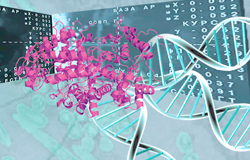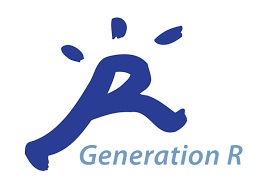About our Department
Our research
Our mission
Our mission is to:
1) improve health across populations as well as optimize care for individual patients
2) develop and apply novel methods for quantitative research
3) deliver education of the highest academic standard
4) provide an optimal environment for scientific and academic development with a strong focus on scientific integrity
5) facilitate and maintain open communication with the academic and healthcare communities, as well as with the public and
6) build strong collaborations with partners at the institutional, regional, national, and international levels. Here, we provide knowledge and expertise in research methods and epidemiological study designs.
Research Lines
Research at the department of Epidemiology is divided into three main programs:
A) Quantitative methods
B) Epidemiology of Diseases
C) Epidemiology of Determinants.
Each program consists of several research lines. In 2018 the department of Epidemiology consisted of eleven research lines.
Educational programs
The department also takes part of many educational programs including, bachelors or masters programs in Medicine, and Clinical Technology, in addition to masters and PhD programs in Health Science and Clinical Research of the National Institute of Health Science (NIHES). Traditionally, our department had a strong focus on application of epidemiological methods in large population-based studies, i.e. the Rotterdam Study and Generation R.Principal Investigators
-

M.A. (Arfan) Ikram
Head of department
-

D. (Daniel) Bos, MD, PhD
Principal Investigator
-

M. (Mohsen) Ghanbari, MD, MSc, PhD
Principal Investigator
-

Prof. dr. B.E. (Bettina) Hansen
Professor of Clinical Biostatistics
-

Prof. dr. D. (Dimitris) Rizopoulos
Head of department Biostatistics
-

S. (Sonja) Swanson, Sc.D
Principal Investigator
-

N. (Natalie) Terzikhan, PhD
Coordinator Scientific Affairs
-

M.W. (Meike) Vernooij, Prof.
Principal Investigator
-

R.G. (Trudy) Voortman, PhD
Principal Investigator
Research Lines
- Biostatistics
- Cardiometabolic Epidemiology
- Causal Inference
- Clinical Epidemiology
- Imaging of Arteriosclerosis
- Molecular and Systems Epidemiology
- Neuroepidemiology
- Nutrition and Lifestyle Epidemiology
- Pharmacoepidemiology
- Population Imaging
- Psychiatric Epidemiology
- Pulmonary Epidemiology
- Translational Epidemiology
Assessment of Radiological Technology
Causal Inference Group
Epidemiology of Cardiometabolic Disorders
Imaging of Arteriosclerosis
Laboratory Epidemiology Cofa ERGO
Methylation, Imaging and Neurodevelopment (MIND) consortium
Molecular and Systems Epidemiology
Neuro-Epidemiology
Nutrition and Lifestyle Epidemiology
Psychiatric Epidemiology
Projects
Dissertations
Publications
Facilities
Collaborations
The department of Epidemiology is a prominent center worldwide in epidemiological research.
We strive to combine development of new quantitative methods with direct implementation and application in clinical and population research.
Within the department we have an extensive network of collaborations with many ongoing projects that cut across multiple research lines.In fact, our goal is to appoint every graduate student to work across at least two research lines. This way, we facilitate cross-talk, exchange of ideas, and rapid dissemination of knowledge, for instance from methods development to application.
Similarly, we have many ongoing collaborations with numerous departments within the Erasmus MC. Importantly, these collaborations extend to both clinical departments as well as basic sciences departments. Long-standing collaborations (>10 years) are with the departments of Neurology, Radiology, Internal Medicine, Pulmonology, Pediatrics, Ophthalmology, Child & Adolescent Psychiatry and Cardiology. We have solidified these collaborations by arranging joint appointments of our faculty with the respective clinical department.
In addition, we have arranged statistical consultancy agreements with several other departments, including Gastroenterology, Infectious Diseases, and Surgery. Again, these arrangements facilitate exchange of ideas and dissemination of knowledge.
Moreover, the department of Epidemiology is coordinator or key collaborator in more than 20 Academic Centers of Excellence.
Our collaborations are not restricted to Universities, but extend for other Academic Institutes and Private Organizations (i.e. RIVM, KNAW, Inspectorate, CBS, NIH, Chinese Academy of Sciences, BioGen Inc, Johnson&Johnson). Finally, our collaborations are truly global, with ongoing projects in over 30 countries. Importantly, this includes emerging economies as well as low- and middle-income countries.


